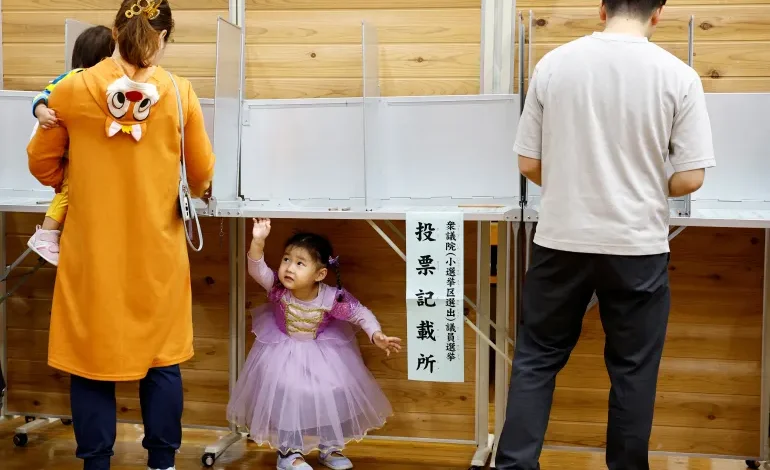Japan’s ruling coalition to lose parliamentary majority, exit polls show

Japan’s ruling coalition may fall short of a parliamentary majority, exit polls show, raising uncertainty over the make-up of the government of the world’s fourth-largest economy.
A poll by national broadcaster NHK on Sunday showed the Liberal Democratic Party (LDP), which has ruled Japan for almost all of its post-war history, and junior coalition partner were set to win between 174 and 254 of the 465 seats in the lower house of Japan’s parliament.
The main opposition Constitutional Democratic Party of Japan (CDPJ) is predicted to win 128 to 191 seats. The outcome may force the LDP or CDPJ into power-sharing agreements with other parties to form a government.
A poll by Nippon TV showed the ruling coalition would win 198 seats to the CDPJ’s 157, both well short of the 233 seats needed to reach a majority, as voters punished Prime Minister Shigeru Ishiba’s party over a funding scandal and inflation.
“It was a tough fight for the LDP,” Shinjiro Koizumi, the LDP’s election chief, told NHK.It was unclear from the projections whether Prime Minister Shigeru Ishiba would still be able to secure a majority in parliament alongside its long-term coalition partner, the Komeito party.
Local media speculated that Ishiba could potentially even resign immediately to take responsibility, becoming Japan’s shortest-serving prime minister in the post-war period.
The current record is held by Naruhiko Higashikuni who served for 54 days – four days more than British leader Liz Truss in 2022 – just after Japan’s 1945 defeat in World War II.
“The LDP’s politics is all about quickly implementing policies for those who give them loads of cash,” 67-year-old Noda told his supporters on Saturday.
“But those in vulnerable positions… have been ignored,” he added, accusing the government of offering insufficient support for survivors of an earthquake in central Japan.
Analysts suggest Ishiba could fall short of reaching his target, though his LDP was expected to remain the top party in Japan’s parliament as voters are sceptical about the opposition’s ability and experience.
Ishiba’s party is also being tested to break the legacy of the late Premier Shinzo Abe. Abe’s policies focused on security, trade and industry but largely ignored equality and diversity, and his nearly eight-year tenure led to the corruption, experts say.










